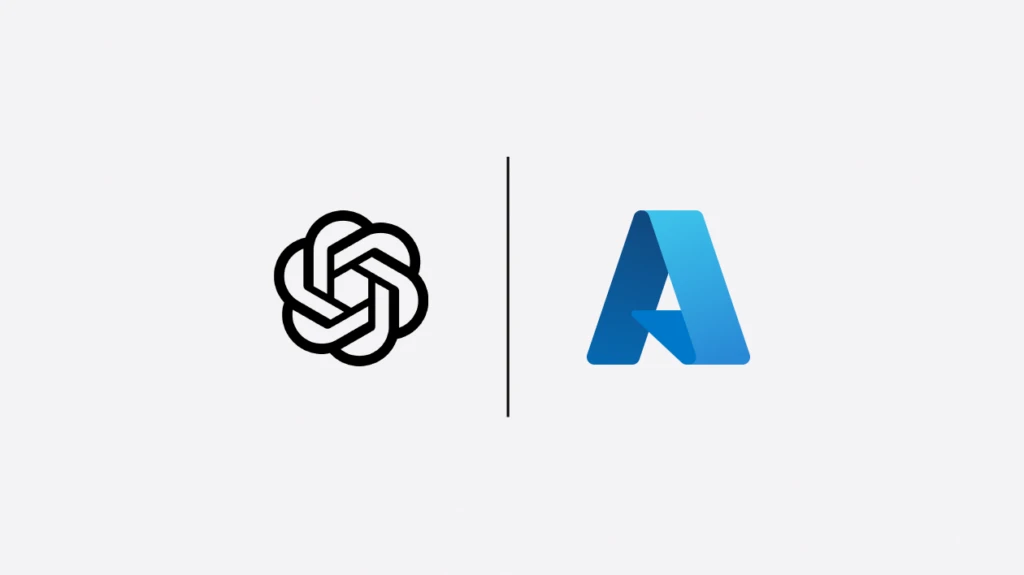The Evolution of Customer Support
Historically, customer support relied heavily on human agents, leading to challenges such as long wait times, inconsistent service quality, and high operational costs. The advent of AI introduced chatbots capable of handling basic inquiries, but early iterations often lacked the depth and adaptability required for complex interactions. With the integration of Azure OpenAI, the landscape has shifted dramatically, enabling the development of chatbots that understand context, interpret nuanced queries, and provide accurate, timely responses.
Technical Insights: Azure OpenAI's Capabilities
Azure OpenAI offers access to powerful language models like GPT-4, which have been trained on diverse datasets encompassing a wide range of topics.
These models excel in natural language understanding and generation, making them ideal for creating chatbots that can engage in meaningful conversations.
Key features include:
1. Contextual Understanding: Ability to maintain the context of a conversation over multiple turns, ensuring coherent and relevant responses.
2. Personalization: Utilizing user data to tailor interactions, enhancing user satisfaction and engagement.
3. Multilingual Support: Handling inquiries in various languages, catering to a global audience.
4. Integration with Azure Services: Seamless connectivity with other Azure offerings, such as Cognitive Services and Azure Bot Service, to enhance functionality.
5. Developers can leverage the Azure OpenAI API to integrate these models into their applications, enabling chatbots to process and respond to user inputs effectively. The API facilitates customization, allowing fine-tuning of models to align with specific industry requirements or company guidelines.
Business Impact: Benefits and ROI
Implementing Azure OpenAI-powered chatbots offers several advantages:
1. Cost Reduction: Automating routine inquiries reduces the need for large customer support teams, leading to significant savings.
2. Enhanced Customer Satisfaction: Immediate, accurate responses improve the customer experience, fostering loyalty and retention.
3. Scalability: Chatbots can handle multiple interactions simultaneously, ensuring consistent service during peak times without additional staffing.
4. Data-Driven Insights: Analyzing interactions provides valuable data on customer preferences and pain points, informing business strategies.
5. The return on investment (ROI) is evident as businesses can reallocate resources from handling repetitive tasks to focusing on complex customer needs and strategic initiatives.
Case Studies: Real-World Applications
Several organizations have successfully integrated Azure OpenAI into their customer support systems:
-Contoso Energy: Developed a chatbot that converses with customers using the company's knowledge base, providing instant answers and initiating calls when necessary.
This implementation led to improved customer engagement and operational efficiency.
-Rackspace Technology: Created a personalized chatbot combining Azure OpenAI with Azure AI Search,
enabling the bot to retrieve relevant information from data sources and deliver contextually accurate responses.
This approach enhanced the quality of customer interactions and reduced response times.
Azure Integration: Building Intelligent Chatbots
Azure provides a comprehensive ecosystem for developing and deploying AI-driven chatbots:
-Azure AI Bot Service: Offers an integrated development environment for building bots, with features like a low-code graphical
interface and seamless integration with various channels, including Microsoft Teams and web applications.
-Azure Cognitive Search: Enhances chatbot capabilities by enabling them to retrieve and process information from extensive datasets,
ensuring responses are both accurate and relevant.
-Azure Communication Services: Facilitates the addition of voice and video capabilities to chatbots, allowing for more interactive and personalized customer engagements.
By leveraging these services, businesses can create robust, scalable, and intelligent chatbots tailored to their specific needs.
Best Practices: Implementing Azure OpenAI Chatbots
To maximize the effectiveness of Azure OpenAI-powered chatbots, consider the following best practices:
1. Define Clear Objectives: Establish what you aim to achieve with the chatbot, such as reducing response times or handling specific types of inquiries.
2. Data Privacy and Compliance: Ensure that the chatbot adheres to data protection regulations, especially when handling sensitive customer information.
3. Continous Training: Regularly update the chatbot's knowledge base and fine-tune the model to adapt to changing customer needs and preferences..
4. User Feedback Integration: Implement mechanisms for collecting user feedback to identify areas for improvement and enhance the chatbot's performance.
5. Seamless Escalation Paths: Design the system to recognize when to transfer complex issues to human agents, ensuring a smooth customer experience.
Latest Developments: AI Agents and Future Trends
The field of AI-driven customer support continues to evolve, with emerging trends such as:
-AI Agents AI Agents: Autonomous programs capable of performing tasks and making decisions with minimal human
intervention are being developed to handle more complex customer service scenarios.
-Enhanced Conversational AI: Advancements in natural language processing are leading to more intuitive and human-like interactions,
further bridging the gap between human agents and chatbots.
-Integration with IoT Devices: Chatbots are increasingly interfacing with Internet of Things (IoT) devices,
enabling proactive support and real-time issue resolution.
By leveraging these services, businesses can create robust, scalable, and intelligent chatbots tailored to their specific needs.
Conclusion: The Future of Customer Support with Azure OpenAI
Azure OpenAI is revolutionizing customer support by enabling intelligent, scalable, and personalized interactions.
From reducing operational costs to enhancing customer satisfaction, businesses that leverage Azure OpenAI-powered chatbots are gaining a competitive
edge in a digital-first world.
The technology’s ability to integrate seamlessly with other Azure services, such as Cognitive Services, Bot Service, and Azure Communication Services,
allows for the creation of comprehensive support ecosystems. Real-world examples, such as Contoso Energy and Rackspace Technology, illustrate how
organizations can harness this technology to achieve measurable outcomes.
Looking ahead, the rapid advancement of AI agents and conversational technologies, combined with evolving capabilities in personalization and
real-time data processing, will continue to push the boundaries of customer support innovation. Companies that adopt and continuously refine
their chatbot strategies will not only meet but exceed customer expectations.

